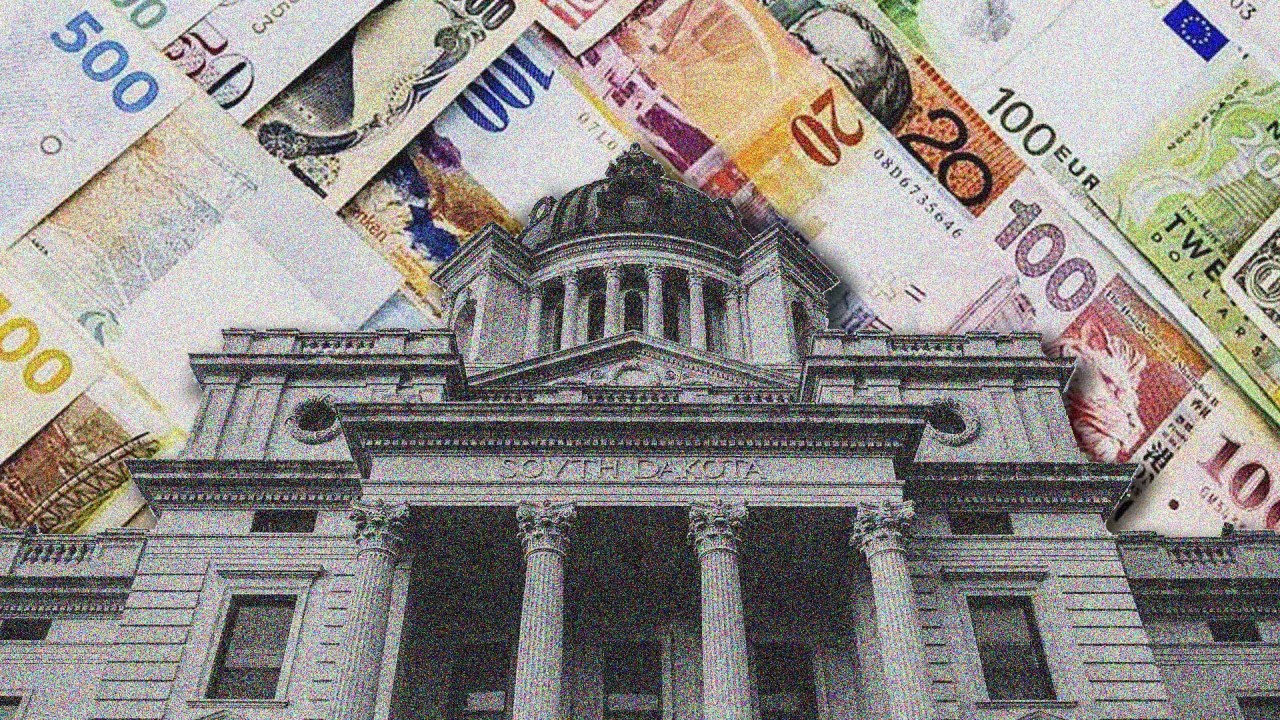Business
Why Are Banks Against Windfall Tax?
By ETIM ETIM

On Wednesday, July 31, two senior bankers, Tony Elumelu, Chairman of UBA Group and Ladi Balogun, Group Chief Executive of FCMB Holdings, walked into President Tinubu’s office to talk to him about the proposed 70 per cent windfall tax be imposed on banks’ super profits by the government. Accompanied by the Minister of Finance and Coordinating Minster of the Economy, Wale Edun and chairman of FIRS, Zacheus Adedeji, the two bank chiefs, tried to convince the president to backdown from imposing such a stringent levy on profits made by the banks from foreign exchange revaluation that arose from the devaluation of the naira last financial year.
Both bankers were in fact nominated by the industry to meet the president on its behalf and convince him of the need to withhold assent to the 2024 Finance Bill which contains the controversial 70 per cent tax. It is doubtful that the bankers were successful in their mission, according to my informed sources. The president, I was told, welcomed them warmly, but politely turned down their request, lecturing them on why the banks should be prepared to contribute much more to reviving the economy. The government, facing severe fiscal crisis due to steady decline in oil revenues in the last several years, believes that the windfall tax will rake in enough revenue to cover a good portion of the deficit in the 2024 budget.
Following the massive devaluation of the naira against the dollar (and other foreign currencies) last year, individuals and businesses that had dollars in their bank accounts suddenly found themselves richer by over 100 per cent in naira terms. For the banks which traditionally have large foreign currency holding, the revaluation automatically translated into massive gains and sharp increase in their profits in 2023 FY – some as high as 200 per cent jump from the 2022 figures. It is on this extraordinary gain that the government wishes to impose the 70% tax, in addition to the 30% corporate tax that the banks had already paid.
But the banks are against the draconian levy and their argument is that the tax could significantly reduce profits available to cover non-performing loans and maintain regulatory capital requirements. Reduced profitability, they argue, poses huge risk to the financial stability of the industry, especially to lenders who are already operating close to regulatory thresholds. ‘’Many manufacturers in the country are already declaring huge losses due to this same foreign exchange revaluations. What that tells me is that these companies are no longer able to service their loans; these loans are already being classified and are going bad; and the banks will soon take huge write downs on these loans’’, said an executive director in charge of corporate banking in one of the big banks. In other words, today’s super profits will turn into losses tomorrow in the industry.
Another argument is that it is counterproductive to tax banks’ profit while the CBN has recently increased the minimum share capital for all categories of banks. ‘’The profit comes from the capital, and a further tax on profit is tantamount to taxing capital that we are trying to raise’’, said a chief financial officer in a bank. There are also the investor sentiments. Banks’ share prices have been falling – by between 10% and 15% – since the National Assembly passed the bill three weeks ago. ‘’The uncertainty this announcement has created is not good for investors’ confidence in the system’’, a bank chief executive told me.
The fact that this tax is imposed retroactively has also raised concerns about its fairness and appropriateness. It is a well-established principle in law that no act of parliament should take retroactive effect. The FIRS is well aware of this in the various litigations it’s been involved in. In one such case (FIRS vs ACUGAS), the Federal High Court, Abuja, on Monday, 27 June 2022, ruled that the FIRS and the Attorney General (the plaintiffs) acted unlawfully by applying the provisions of Finance Act 2019 to transactions that occurred before January 13 2020.
Finally, imposition of tax on foreign exchange gains presents some kind of dilemma in the industry and to the tax authorities. Are these gains revenue to the banks, which should therefore be subject to corporate income tax, or are they capital gains, which may be subject to capital gains tax? Whatever the case, some analysts are claiming that the so-called windfall profit are mere paper profits as they have not really been realized, and so should not even be taxed.
The weeklong protests rocking the country have momentarily distracted government’s attention from the from this bill. I am sure that the president will return to it when calm returns. But before then, Bank Directors Association of Nigeria will meet on August 12 to take a position on the matter.
In May 2022, the UK government introduced windfall profit tax on crude oil producing companies. Known as Energy Profit tax, it was introduced as a response to soaring oil prices. The government argued that the tax is justified because the companies ‘’were not responsible for the windfall’’. In the first year, the government raised £2.6 billion. It is not clear how much the Nigerian government will raise from the banks, but it is notable that the banks are not resorting to litigation to settle the dispute as some businesses have done in the past. In fact, the interviews Elumelu and Balogun gave to the media after the meeting with Tinubu seems to suggest that the banks will conform if the rate is reduced.
Send Us A Press Statement Advertise With Us Contact
And For More Nigerian News Visit GWG.NG

